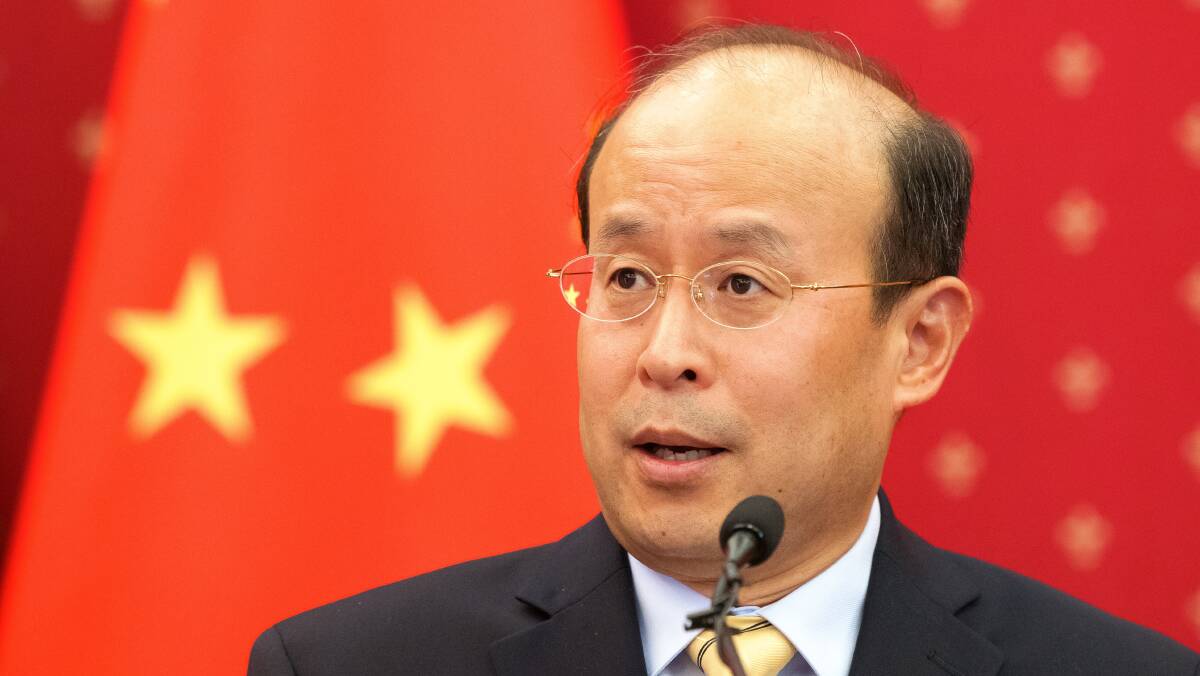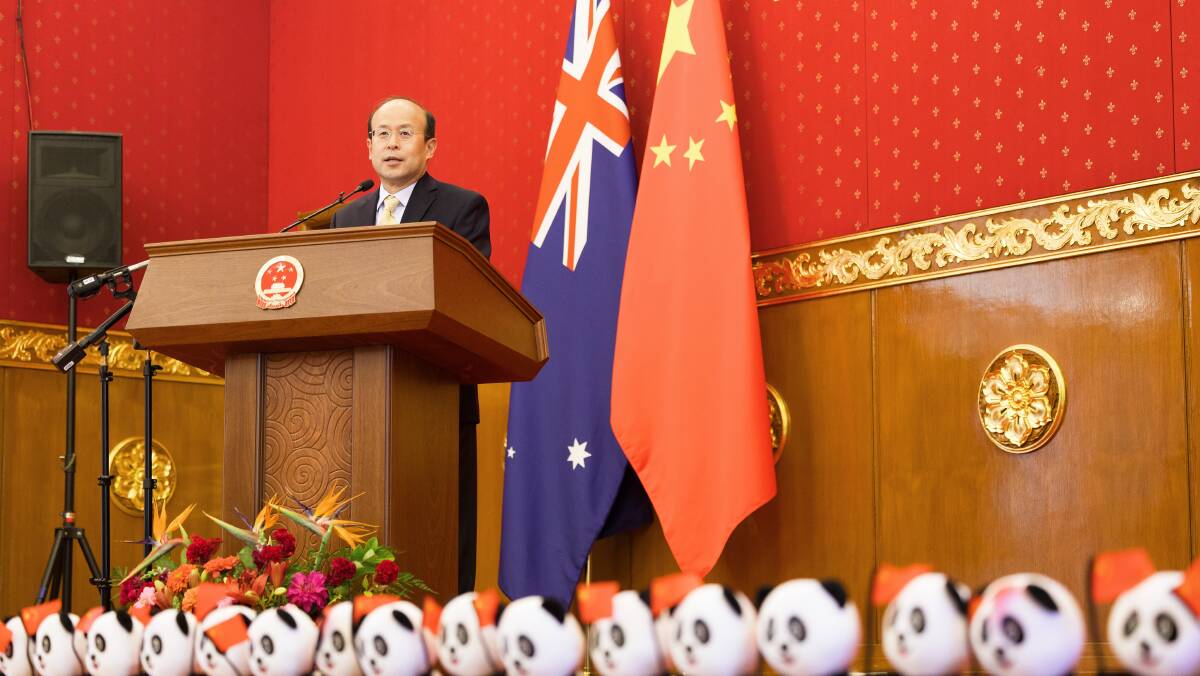China's ambassador to Australia has come out swinging against the AUKUS agreement, saying the pact "targets" China as a threat and is a "bad idea".
Subscribe now for unlimited access.
$0/
(min cost $0)
or signup to continue reading
Xiao Qian stopped short of calling on the Albanese government to leave the landmark information-sharing deal as he addressed journalists on Tuesday at a rare media event at China's embassy in Canberra.
China's head of mission described relations with Australia as having reached a "turnaround" after a period of falling behind but still had a number of concerns.
One of those concerns was the much-publicised nuclear-powered submarine sharing deal, inked between the United Kingdom, the United States and Australia in September 2021.
Mr Xiao described the security pact as a bad idea and Australia's acquisition of nuclear-power submarines as "an even worse idea".
"I don't think it's constructive. I don't think it's helpful, especially when you're targeting China as a potential threat or adversary," he said.

"If this government, if this country, really spends money to purchase the infrastructure, it's going to be an unnecessary consumption of the Australian taxpayers' money."
Mr Xiao's public appearance follows months of talks between officials from the two countries in what has largely been seen as thawing of the once-frosty relations.
But experts warn the "nicer" approach is likely part of a bigger play for China.
Taiwan, Xinjiang grievances remain
The top diplomat lauded the "very successful" meeting between Prime Minister Anthony Albanese and President Xi Jinping as an opportunity to set the tone for future discussions.
However, grievances, such as those outlined in a leaked document to Australian media years earlier, remained still top of mind.
READ MORE:
The hour-long media event touched on a broad range of topics, including the detention of Australian journalists, Cheng Lei and Yang Hengjun, China's COVID-19 surge and the country's ban on Australian coal.
On Taiwan, Mr Xiao claimed the majority of people living on the large island wanted to reunify with China, despite heightened tensions.
"We understand there are the majority of the people in Taiwan want the reunification," he said.
"But there are still a handful of people, political forces, in Taiwan and certain forces outside Taiwan that try to split Taiwan from China ... that is absolutely not acceptable to the 1.4 billion Chinese people."
The Chinese ambassador last year warned it would not compromise on the issue of Taiwan, defending the nation's live-fire drills as "justified" and refusing to rule out taking the island by force.

China's lines on allegations of human rights abuses against the Uyghurs - an ethnic minority group residing primarily in the country's north-west Xinjiang region - have also not changed.
Last year, a 48-page report from the UN Human Rights Office said "serious human rights violations have been committed" in Xinjiang "in the context of the government's application of counter-terrorism and counter-'extremism' strategies".
Mr Xiao said the region's issues were being driven by a "handful" of people and that the human rights reports alleging abuses were politicised or factually incorrect.
"We're not having problems with any other ethnic group," he said.
"It's a fight against terrorism, the fight against a ... separation."
'Nothing's changed, no radical concessions'
China expert at Australian National University Dr Graeme Smith said China had become more "smiley" toward Australia but it represented a new strategy, not a change of heart.
China's relationship with the United States remained most important as a "first-tier" while Australia sat at second-tier along with France, Germany and Japan, he said.
It meant China oscillated between coercing Australia, or co-opting it.
The Albanese government's election had given China a clean slate to start over again after little success with the coercion strategy.
"Part of the game is to see a breakdown in bipartisanship on foreign policy and for them, that's a good thing," Dr Smith said.
"By signaling to a new government, 'we'll be nice to these guys. We won't be nice to the other guys,' they contribute in some ways to the breakdown of bipartisanship.
"I think in terms of what's changed? Nothing much has changed.
"They've decided to flick the switch. There's been no radical concessions."
Japanese ambassador Shingo Yamagami similarly urged officials to stay "vigilant" about China's promises until it followed through with actions.
The comments drew condemnation from Mr Xiao, who warned Japan posed an invasion threat in reference to its role during World War Two.
But the rest of Mr Xiao's responses did suggest improvements to the country's bilateral relations could result in bans on coal exports to China being lifted and a return to Chinese university students choosing Australia to study.
Dr Smith said some of these changes could have been the result of domestic factors, as opposed to any shift in Australia's diplomatic importance to China.
"If the two journalists are released, and if ... the tariffs or bans are lifted then you could say all the sunshine is raining," he said.
"It's obviously going to happen gradually and this may be a very first gradual step."


